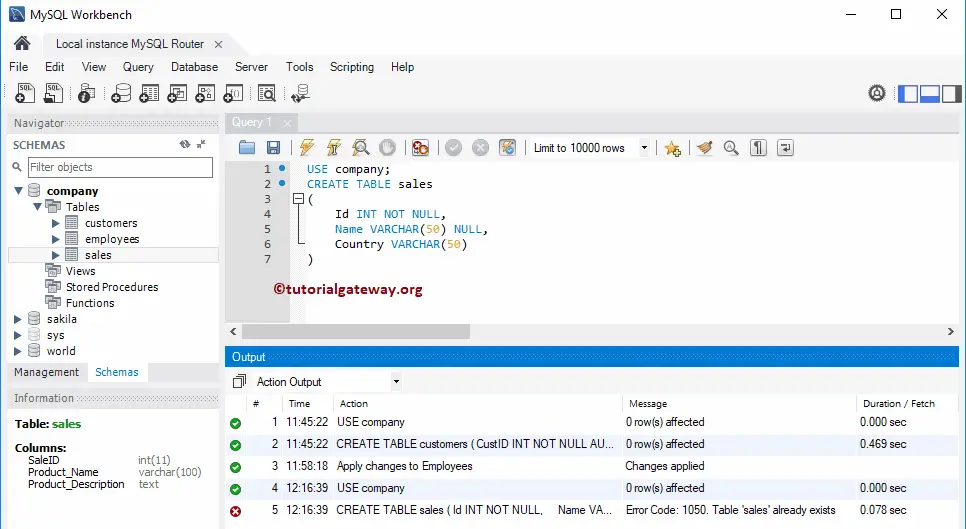

- #Create database mysql linux how to
- #Create database mysql linux install
- #Create database mysql linux driver
- #Create database mysql linux full
- #Create database mysql linux password
If this is not done some character sets – notably emojis – cannot be used.
#Create database mysql linux full
It's recommended that full UTF-8 support is configured in MySQL. Otherwise, Moodle will not be able to write to the database. If you are going to use Master/Slave replication, you must add binlog_format = 'ROW' into your my.cnf within.Increase the 'max_allowed_packet' setting to at least 4 megabytes. The default configuration is usually very conservative in respect of memory usage versus performance. Consider installing and configuring my.cnf (the MySQL settings file) to suit your needs.
#Create database mysql linux password
Make sure you set a password for the 'root' user (see ).It is possible and reasonably straightforward to build mysql from source but it is not recommended (the pre-built binaries are supposedly better optimised).There are installers available for most popular operating systems at.However, you can also use apt-get or yum depending on the distribution that you are running. This ensures you will get any available updates.
#Create database mysql linux install
If you are running Linux your preference should be to install using your distribution's package manager.3 Which database belongs to which Moodle.The name of the database that you created in Step 3. The password for the user account that connects to the database server. The user name to connect to the database server with. The port to use to communicate with the database server. The IP address or hostname of the server that the database server is installed on. Under the data source name, set the following parameters. This file is usually stored in the /etc directory.Īdd the data source name in square brackets. Open the odbc.ini file with a text editor.If you have the relevant Yum repository, you can run the command in the terminal: sudo yum install mysql-connector-odbc If you have the relevant Yum repository, you can run the command in the terminal: sudo yum install unixODBC
#Create database mysql linux driver
Install unixODBC driver manager version 2.2.14 or later. Is the user name that Media Server will connect as. Is the name of the database you created in Step 2. GRANT EXECUTE ON databaseName.* TO username GRANT SELECT, INSERT, UPDATE, DELETE ON databaseName.* TO username Run the GRANT commands: GRANT CREATE TEMPORARY TABLES ON databaseName.* TO userName If security is not a consideration, grant all privileges. Grant privileges to the user that Media Server will connect to the MySQL server as. Running the script non-interactively from the terminal ensures that the script terminates if an error occurs. Is the name of the database you created in Step 3. In the terminal, run the command: mysql -u userName -p -v -D databaseName -e "source path/my.sql" This script sets up the database schema that Media Server requires. Run the my.sql script provided in the Media Server installation directory. Database nameĪny that is compatible with the encoding.įor example: CREATE DATABASE myDatabase CHARACTER SET utf8 COLLATE utf8_unicode_ci

Run a CREATE DATABASE command to create a new database. If the directory path is not added to the PATH variable, you must specify the mysql.exe file path in the terminal to start mysql. This step enables you to use the command mysql to start the mysql command-line tool from the terminal.
#Create database mysql linux how to
The procedure describes how to set up a MySQL database on a CentOS 6 distribution. To use Media Server with a MySQL database, you must install a MySQL server and ODBC driver, and configure Media Server to connect to the database through the driver. Open topic with navigation Set Up a MySQL Database on Linux


 0 kommentar(er)
0 kommentar(er)
